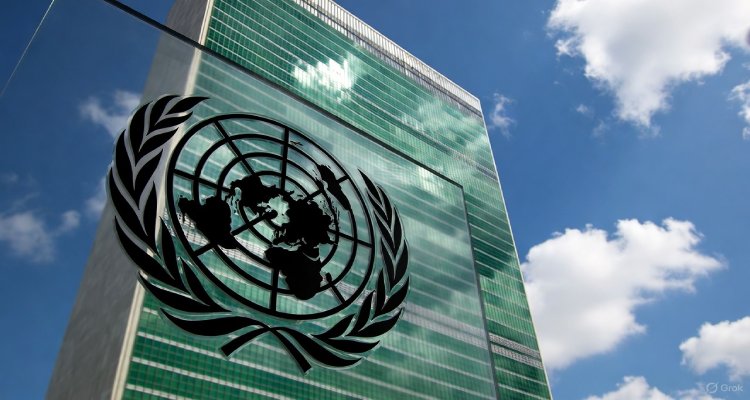What Is the Purpose of the UN’s Fifth Committee?

The UN’s Fifth Committee plays a pivotal role in shaping how the organization functions financially. Here’s a detailed look at its purpose, powers, and growing importance amid UN’s budget crisis.
Introduction: A Financial Crossroads for the United Nations
As the United Nations grapples with a deepening financial crunch, Secretary-General António Guterres has issued a stark warning — the organization faces a “race to bankruptcy” unless Member States meet their obligations on time. His sharply reduced $3.238 billion regular budget proposal for 2026, unveiled on October 17, reflects not only fiscal restraint but also a growing anxiety within the UN system.
The gravity of the situation was underscored during his address to the Fifth Committee of the General Assembly — the UN’s main administrative and budgetary arm — which holds the keys to the organization’s financial survival.
The Context: A Shrinking Budget and Rising Arrears
The Secretary-General’s 2026 proposal marks a 15.1% decrease from the approved 2025 appropriation and a notable drop from his earlier 2026 request of $3.715 billion. With Member States delaying or withholding payments, the UN finds itself struggling to sustain even its essential operations.
By late September 2025, only 136 of the 193 Member States had paid their dues in full, leaving a substantial $760 million in arrears from the previous year and another $300 million in credits set to be returned in early 2026. This double blow effectively drains nearly 10% of the available cash for the coming year.
Major contributors like the United States, China, Russia, and Mexico remain among those that have not completed payments — a worrying signal for the UN’s liquidity and credibility.
The Fifth Committee: The UN’s Financial Brain
The Fifth Committee is one of six principal committees of the UN General Assembly. While others handle security, human rights, or legal affairs, the Fifth Committee’s focus is clear: to manage the UN’s financial and administrative backbone.
Every year, it debates, adjusts, and ultimately approves the organization’s regular budget — the lifeline that funds the Secretariat, special political missions, and human rights initiatives.
It also oversees:
- Staffing levels and personnel policies
- Administrative reforms and internal oversight
- Financing of special missions and field operations
- Recommendations for cost control and fiscal responsibility
In essence, the Fifth Committee ensures that every UN dollar is accounted for, making it the quiet yet powerful arena where global diplomacy meets financial governance.
Where the UN Gets Its Money
The UN’s regular budget is funded by mandatory assessed contributions from all 193 Member States, based on each country’s capacity to pay.
The formula — reviewed every three years — considers factors such as:
- Size of the national economy
- Income per capita
- Level of development
- External debt burden
The United States, the largest contributor, is assessed the maximum rate of 22%, while the smallest economies pay as little as 0.001%.
This budget covers the organization’s core administrative costs, including the:
- UN Secretariat
- General Assembly and Security Council operations
- International Court of Justice
- Human rights entities and political missions
Additionally, the UN operates a separate peacekeeping budget, running on a July–June cycle, distinct from the regular calendar-year budget.
Most budgetary decisions are reached by consensus, though in rare cases, votes require a two-thirds majority of members present and voting.
What Happens When Countries Don’t Pay
Financial delinquency within the UN has tangible consequences. Under Article 19 of the UN Charter, if a Member State’s arrears equal or exceed the amount due for the previous two years, it loses its right to vote in the General Assembly.
Exceptions can be made if the Assembly decides that the nonpayment is due to circumstances beyond the country’s control, such as war or economic collapse. Still, most nations work to avoid this reputational setback.
Guterres’ Warning: “A Race to Bankruptcy”
In his remarks to the Fifth Committee, Guterres painted a grim picture of the UN’s financial health. “High arrears, delayed contributions, and the return of credits are threatening to wipe out liquidity and undermine core operations,” he cautioned.
The revised budget also calls for significant staffing cuts — from 13,809 posts in the original proposal to 11,594, marking an 18.8% reduction compared with 2025. These cuts, however, are designed to shield frontline programs that directly support Least Developed Countries (LDCs), Landlocked Developing Countries (LLDCs), Small Island Developing States (SIDS), and Africa’s development agenda.
This balancing act reflects the UN’s attempt to sustain its mission despite the financial squeeze.
Expert Insights: A System Under Pressure
Financial analysts and international policy experts see the situation as emblematic of a broader trust deficit between the UN and its Member States.
“Budgetary fatigue is real,” says a Geneva-based diplomat familiar with UN negotiations. “Large contributors feel overburdened, while smaller nations rely on the UN more than ever. The Fifth Committee sits at the intersection of these tensions.”
Others argue that the crisis may spur long-overdue reforms in transparency and resource allocation. “The UN’s budgeting system, designed in the 1940s, needs modernization,” notes an international governance researcher. “This could be a turning point.”
The Implications: A Test of Multilateral Commitment
The Fifth Committee’s decisions in the coming months will determine whether the UN can avert a deeper financial collapse. If Member States continue to delay or withhold payments, essential programs — from peacekeeping logistics to humanitarian coordination — could face disruption.
Moreover, the credibility of multilateralism itself may be at stake. The UN’s ability to respond to crises, mediate conflicts, and advance the Sustainable Development Goals (SDGs) depends heavily on financial stability.
As Guterres put it bluntly: “The UN cannot do its job if it cannot pay its bills.”
Conclusion: The Fifth Committee’s Crucial Role in the UN’s Survival
In a world increasingly defined by political divisions and global crises, the UN’s Fifth Committee stands as a silent guardian of the institution’s functionality. Its work may be procedural, but its consequences are monumental.
The current fiscal turbulence underscores an enduring truth — the strength of the United Nations rests not only on its ideals but also on the collective responsibility of its Member States to sustain them.
If the world’s nations fail to uphold that responsibility, the UN’s ability to serve humanity — from peacekeeping to poverty reduction — may hang in the balance.
Disclaimer:This article is a factual and analytical exploration of the UN’s administrative and budgetary mechanisms based on publicly available information. It does not represent official UN positions or statements.










